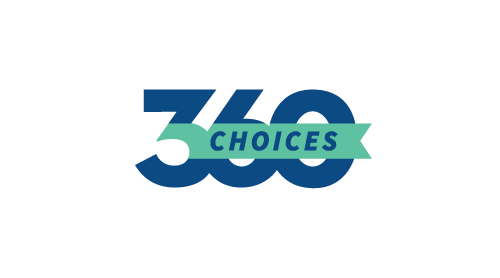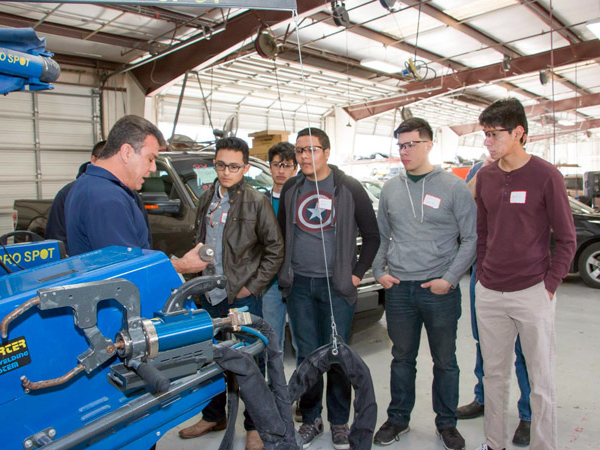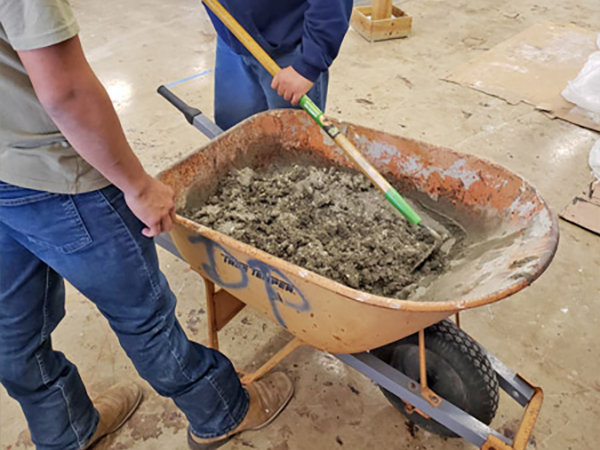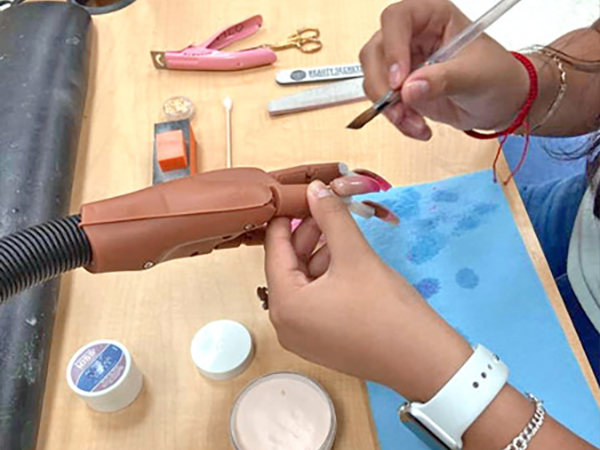
Students in Northside’s Career and Technical Education (CTE) programs spend much of their time learning through a hands-on approach that prepares students for occupations and further study. CTE programs are available in middle school and high school and are available in many career areas of interest to students. Students interested in a particular field can look at the coherent sequence of courses to see the courses that will help them prepare for their chosen careers. Students may also wish to choose an academy or magnet school designed to prepare students for careers. Northside’s career oriented high schools and middle school magnet schools include Agriculture Academy, Construction Careers Academy, Health Careers High School, Jay Science and Engineering Academy, Jones STEM Middle School, Marshall Law & Medical Services High School, NSITE (Northside School of Innovation, Technology and Entrepreneurship), and Zachry Global Communication, Information Technology & Cybersecurity Middle School. Industry recognized certifications may be earned in some courses & some courses may even allow the students to earn college credit. Any student who is interested should talk with his or her CTE instructor or counselor.

Career Exploration
All secondary students can access their Choices360 account through their NISD Portal. Choices360 helps students and families with career and post secondary planning. Included within Choices360 are tools for career and college exploration.
College Credit Opportunities
High school students can earn college credits by signing up for CTE dual credit. Some courses are offered at specific campuses and others are offered at the college campus. Information about earning college credits may be obtained from the school’s counseling department.
Programs of Study
In support of the State of Texas’ college and career planning initiative, NISD has developed multiple Programs of Study (POS) which combine rigorous academics and relevant career and technical education to create a plan of study that has real focus and purpose for students. A POS consists of a recommended coherent sequence of courses based on the student’s interest, skills, and college and career goals and provides the student and his/her family with a seamless transition to employment and/or postsecondary education and to higher wage, higher skill, and higher demand jobs in the workforce.
Industry Based Certifications
Northside offers students many opportunities to earn current industry based certifications through our CTE courses. These certifications will help students, as they exit high school, with gainful employment or assist in continuing their education.
Magnet Programs
Northside offers 8 high school and 3 middle school magnet programs for students interested in specific career fields. All high school magnet schools (except for Health Careers High School) operate as a school-within-a-school, which allows students to participate in Fine Arts programs like band, choir and orchestra, sports, and clubs and organizations on their comprehensive high school’s campus. All Northside eighth graders are eligible for enrollment. Applications are also being accepted for students outside Northside ISD. Please check with individual programs for application and age requirements. Enrollment is limited at each school. Transportation will be provided for eligible students.
Staff Contacts
Contact information for the NISD Career & Technical Education department staff can be found here.
Student Organizations for CTE
Career and Technical Student Organizations are comprised of 11 not-for-profit organizations, specifically authorized by the U.S. Congress in the Perkins Act which provides approximately $1.1 billion in state grants for CTE programs.
Nondiscrimination Notice for CTE
Northside Independent School District offers Career and Technical Education programs in Agriculture, Food & Natural Resources; Architecture and Construction; Arts, A/V Technology and Communications; Business Marketing and Finance; Education and Training; Energy; Engineering; Health Science; Hospitality & Tourism; Human Services; Information Technology; Law and Public Service; Manufacturing; and Transportation, Distribution and Logistics. Admission to these programs is based on interest and aptitude, age appropriateness and class space available.
It is the policy of Northside Independent School District not to discriminate on the basis of race, color, national origin, sex or handicap in its vocational programs, services or activities and provides equal access to the Boy Scouts and other designated youth groups as required by Title VI of the Civil Rights Act of 1964, as amended; Title IX of the Education Amendments of 1972; and Section 504 of the Rehabilitation Act of 1973, as amended.
Northside Independent School District will take steps to assure that lack of English language skills will not be a barrier to admission and participation in all educational and vocational programs. For information about your rights or grievance procedures, contact the HR District Compliance Officer, Monica Perez, at 5617 Grissom Rd, San Antonio, TX 78238, (210) 397-8600, and/or Director of Section 504 Jocelyn Dudney at 5651 Grissom Road, San Antonio, TX 78238, (210) 397-8741.
El Distrito Escolar Independiente de Northside ofrece programas de Educación Profesional y Técnica en las siguientes áreas: Agricultura, Alimentos y Recursos Naturales; Arquitectura y Construcción; Artes, Tecnología de Audio/Video y Comunicaciones; Negocios, Mercadotecnia y Finanzas; Educación y Capacitación; Energía; Ingeniería; Ciencias de la Salud; Hospitalidad y Turismo; Servicios Humanos; Tecnología de la Información; Leyes y Servicio Público; Manufactura; y Transporte, Distribución y Logística. La admisión a estos programas se basa en el interés y la aptitud del estudiante, la edad apropiada y el espacio disponible en clase.
Es política del Distrito Escolar Independiente de Northside no discriminar por motivos de raza, color, origen nacional, sexo o discapacidad en sus programas, servicios o actividades vocacionales, y proporcionar igual acceso a los Boy Scouts y otros grupos juveniles designados, según lo requiere el Título VI de la Ley de Derechos Civiles de 1964, según enmienda; el Título IX de las Enmiendas Educativas de 1972; y la Sección 504 de la Ley de Rehabilitación de 1973, según enmienda.
El Distrito Escolar Independiente de Northside tomará las medidas necesarias para asegurar que la falta de habilidades en el idioma inglés no sea una barrera para la admisión y participación en todos los programas educativos y vocacionales. Para obtener información sobre sus derechos o los procedimientos de queja, comuníquese con la Oficial de Cumplimiento del Distrito en Recursos Humanos, Monica Perez, en 5617 Grissom Rd, San Antonio, TX 78238, (210) 397-8600, y/o con la Directora de la Sección 504, Jocelyn Dudney, en 5651 Grissom Road, San Antonio, TX 78238, (210) 397-8741.
CTE Classes at Holmes HS
Animation: Animation is the examination of concepts, characters, and storyboards for basic animation production. Putting an emphasis on creating movement and expression utilizing traditional or electronically generated image sequences. Initially, an introduction to traditional animation includes design, storyboarding, stop-motion and character animation. Thereafter students get a working knowledge of animation techniques necessary to design animation sequences. Students can apply the skills learned in these classes in other areas including motion graphics, stop motion and computer-generated animation. These classes include the chance to get professional certifications in Adobe Animate, Adobe Illustrator, & Adobe Photoshop.
Audio Video Production: A second-year course. Audio Video Production will have students develop and understanding of the Arts, Audio/Video Technology, and Communications industry with a focus on pre-production, production, and post-production audio and video activities. Moreover, AV students will have the opportunity to earn a certification in non-linear editing program Adobe Premiere Pro CC.
Automotive: Whether you are looking to become a master automotive technician or just want to learn a little about your own car check out the Harlan Automotive program. This strand offers hands-on learning for students of all skill levels on equipment found in modern repair facilities. Through the 4 year strand, you will learn everything from maintenance and tools to major repairs and diagnostic skills. Along with the opportunity to earn industry certifications such as A.S.E., O.S.H.A., AllData C.A.I.S., and several others, Students will also gain employability skills which will help them secure and hold a job in the industry.
Business Management: Business Management is a program that offers students the opportunity to learn and explore a variety of topics in the business field. Students are exposed to concepts such as marketing, finance and management. Through various projects, students will practice skills such as planning, communication, presentation and collaboration. They will discuss and incorporate key employability skills critical to success in the workplace. Business Professionals of America (BPA) will offer students an opportunity to develop valuable leadership skills by competing in the premier Career and Technical Student Organization.
Child Development: This hands-on class includes information covering the areas of the Roles & Responsibilities of Parenting, Male & Female Reproduction Systems, Prenatal Care & Development, The Developing Child from Infancy through School-age, and the Economics of Parenting. Students will be allowed to take home a Real-Care Baby that provides insight into the overnight care of an infant.
Computer Science Programming & Software development: Computer Science and Software Development is for students who have an interest in writing their own computer programs and/or applications. In the introductory courses (AP Computer Science Principles or OnRamps Computer Science), students learn about block-based programming using Scratch and text-based programming using Processing. OnRamps Computer Science students have the potential to earn both high school and UT Austin college credit simultaneously. In Computer Science 1, students learn about programming basics in the Java programming language. In AP Computer Science A and Computer Science 2, students learn object-oriented programming concepts in the Java programming language. In Computer Science 3, students learn about advanced data structures and cover a survey of different programming languages. The recommended course sequence for Computer Science is as follows: Year 1: OnRamps Computer Science (earn high school and UT Austin college credit) OR AP Computer Science Principles Year 2: Pre-AP Computer Science 1 Year 3: AP Computer Science A (2 period block) OR Honors Computer Science 2 (1 period) Year 4: Honors Computer Science 3
Construction Science: “If you like building things and working with your hands, if you want to be an architect, engineer or go to college or into the building trades this is the strand for you. You will learn life skills and trade skills in this hands-on class. You will learn framing techniques and gain so much knowledge you will know how to build a shed or your own house. You will learn about architecture, concrete, electrical, plumbing, carpentry and more. When you graduate from the Construction Science strand, you will know more than most about all types of construction techniques. As icing on the cake, you will have the opportunity to get an OSHA 10 general industry certification card. This coveted certification is recognized by all industries and will move you to the front of the line when searching for a job. Come join the program and have fun learning and using all the tools and machines in the shop.”
Cosmetology: The Cosmetology and Personal Care Services program of study introduces students to knowledge and skills related to providing beauty and personal care services. CTE concentrators may learn about or practice managing personal care facilities and coordinating or supervising personal service workers. Students coordinate integration of academic, career, and technical knowledge and skills in this laboratory instructional sequence course designed to provide job-specific training for employment in cosmetology careers. Students will attain academic skills and knowledge as well as technical knowledge and skills related to cosmetology.
Culinary: "Our culinary arts program is designed to be well-rounded. It provides you with the skills and knowledge you need to be successful in the workforce. Certainly, you'll be taught cooking and baking skills. You'll also learn about food sanitation and safety and earn a food handlers license. You get to work as a team to cater events during your 2nd and 3rd year Culinary courses. Of course, the best part is the food! As a culinary student, you get to taste the food as you learn how to make it! Oh and we can't forget, an annual Disney trip is also an option for 3rd and 4th year Culinary students."
Cybersecurity: In the Cybersecurity program of study, students will be able to prepare for a career in Cybersecurity through planning, implementing, upgrading, and/or monitoring security measures for the protection of computer networks and information. This program of study also includes exploration into responding to computer security breaches and administering network security measures. In year 1, students will learn the basics of how computers, the internet, and security concepts affect their daily lives. Year 2, students will explore fundamental concepts related to the ethics, laws, and operations of cybersecurity. They will examine trends and operations of cyberattacks, threats, and vulnerabilities. Year 3, students will learn about Computer Network Technologies and how they can be hardened to increase data and information security. Students will learn about networking devices, cabling, protocols, and the way data travels within a local and/or global network. In their final course, Year 4, students will develop the knowledge and skills needed to explore advanced concepts related to the ethics, laws, and operations of cybersecurity. Students will examine trends and operations of cyberattacks, threats, and vulnerabilities. Students will develop and implement security policies to mitigate any risk to their information security. During each year of the Cybersecurity program, students will be able to earn an Industry Recognized Certification: Year 1 – CompTIA IT Fundamentals (ITF+) Year 2 – MTA Security Fundamentals Year 3 – CompTIA Network+ or MTA Networking Fundamentals Year 4 – CompTIA Security+
Digital media: A prerequisite course to Graphic Design and Animation, Digital Media will introduce first-year students to the foundations of these disciplines. Through the study of digital and interactive media and its application in information technology, students will analyze and assess current and emerging technologies, while designing and creating multimedia projects. Moreover, Digital Media focuses on learning Adobe Creative Suite in which students will also have the opportunity to earn certifications in Adobe Photoshop and Adobe Illustrator CC.
Engineering: Engineering is a great opportunity for students to gain knowledge and skills of the design process as it applies to multiple engineering fields. Students use multiple software applications and tools necessary to produce and present working drawings, solid model renderings, and prototypes. Students can obtain industry certifications such as Solidworks CSWA, Solidworks Additive Manufacturing, and OSHA General Safety. Students will use a variety of computer hardware, software applications, and fabrication lab to complete assignments and projects that display original design or re-engineered concepts. Through implementation of the design process, students will transfer advanced academic skills to component designs. Additionally, students explore career opportunities in engineering, technology, and drafting and what is required to gain and maintain employment in these areas.
Fashion Design: Principles of Human Services is the foundation class for the Family and Consumer Sciences Department. This class offers students the opportunity to experience and learn about all of our areas of study including units on personal development, fashion and clothing care, nutrition and food preparation, money management and child development. This course gives students the ability to not only improve their own personal development but also gives them insight into other areas of study and possible career paths.
- Fashion Design Course:
- This is an introductory course to fashion. In the first semester, we will cover a variety of fashion-related topics that include fashion history, designers, styles, textiles, clothing care and the principles and elements of design. The second semester includes learning about the sewing machine and basic sewing skills to create a garment that will be presented at the end of the year Fashion Show.
- Advanced Fashion Design & Practicum in Fashion Design:
- These are two period courses that go into greater detail of the fashion industry while continuing to learn and utilize more advanced sewing skills. Students will also participate in several community programs. The finale for these students is a fashion show highlighting the outfits they have constructed throughout the year. The students will organize and produce every aspect of the show including sets, music, scrips and advertising.
Graphic Design: Graphic Design is the study of two-dimensional (2-D) design with an emphasis on the visual communication design process. Topics include basic terminology and graphic design principles, introduction to the fundamentals of design that lead to the discovery and comprehension of the visual language. Form, balance, structure, rhythm, and harmony are studied in black and white and in color. This approach develops a student’s ability to analyze design using basic principles and theory applicable to all forms of art. These courses are based on the application of the fundamental elements of art. The student is introduced to tools and techniques used in today’s communication industry including the chance to get professional certifications in Adobe InDesign, Adobe Illustrator, & Adobe Photoshop.
Healthcare Diagnostics: In the healthcare diagnostic strand, students will have the opportunity to explore the healthcare industry. Students will begin with Principles of Health Science. This class will give students an overview of what the Health Science Industry encompasses. Students will learn about the different career options, as well as basics such as vital signs and infection control. Next, students will take Medical Terminology. This class teaches students the language that is used in healthcare. In their junior year, students will have the chance to shadow healthcare professionals in the hospital setting. Students can take either Health Science Theory or Health Science Clinical. Both of these classes help students understand medical law and ethics, human growth and development, documentation, communication, vital signs, and infection control. Finally, as a senior, students will have the opportunity to take a practicum class which culminates in a nationally recognized industry certification. In the healthcare diagnostic strand, students have the opportunity to sit for 2 certifications: EKG Technician and Phlebotomist. These certifications will allow students the opportunity to work in the hospital or in the lab setting.
Healthcare Therapeutic: In the healthcare therapeutic strand, students will have the opportunity to explore the healthcare industry. Students will begin with Principles of Health Science. This class will give students an overview of what the Health Science Industry encompasses. Students will learn about the different career options, as well as basics such as vital signs and infection control. Next, students will take Medical Terminology. This class teaches students the language that is used in healthcare. In their junior year, students will have the chance to shadow healthcare professionals in the hospital setting. Students can take either Health Science Theory or Health Science Clinical. Both of these classes help students understand medical law and ethics, human growth and development, documentation, communication, vital signs, and infection control. Finally, as a senior, students will have the opportunity to take a practicum class which culminates in a nationally recognized industry certification. In the Healthcare Therapeutic strand, students can choose between medical assisting, patient care technician, and pharmacology. The CCMA, or Certified Clinical Medical Assistant certification gives the students the opportunity to work in a variety of locations, such as the doctor's office, as an EKG tech, or as a phlebotomist. The PCT certification, or Patient Care Technician, can work in a hospital assisting with basic patient care. The ExCPT exam allows students to become a certified Pharmacy Technician. Under this certification, students can work in pharmacies assisting the pharmacist.
Instructional Practices in Education and Training: Instructional Practices is a field-based (practicum) internship that provides students with background knowledge of child and adolescent development as well as principles of effective teaching and training practices. Students work under the joint direction and supervision of both a teacher with knowledge of early childhood, middle childhood, and adolescence education and exemplary educators or trainers in direct instructional roles with elementary, middle school, and high school-aged students. Students learn to plan and direct individualized instruction and group activities, prepare instructional materials, develop materials for educational environments, assist with record keeping, and complete other responsibilities of teachers, trainers, paraprofessionals, or other educational personnel.
Principles of Arts, AV Technology, and Communication: A prerequisite course to Audio Video Production. First-year students will apply professional communications strategies. They will understand and examine problem-solving methods. Students will use technology applications when competing Arts, Audio/Video Technology, and Communications projects and process.
Principles of Human Services: This course is a foundation class for students entering into the Education Strand. Students will learn how positive relationships are formed, why it is important to make responsible decisions, family structures, functions and responsibilities of the family members, responsibilities of parents, proper maintenance of clothing, construction of clothing, types of housing, principles of design in interior design, types of nutrients and why we need them, dietary practices, and career choices.
Robotics - Advanced Manufacturing & Machinery: Robotics I: Through implementation of the engineering design process, students will transfer advanced academic skills to component designs in a project-based environment. Students will build prototypes or use simulation software to test their designs. Additionally, students explore career opportunities, employer expectations, and educational needs in the robotic and automation industry. Robotics II: Students will explore artificial intelligence and programming in the robotic and automation industry. Through implementation of the design process, students will transfer academic skills to component designs in a project-based environment. Students will build prototypes and use software to test their designs.



